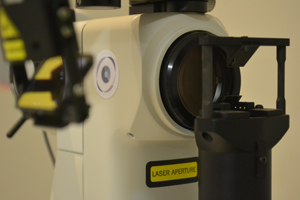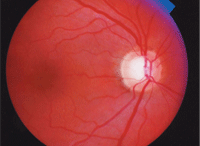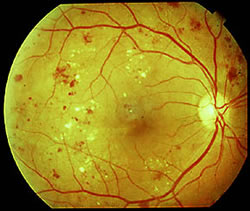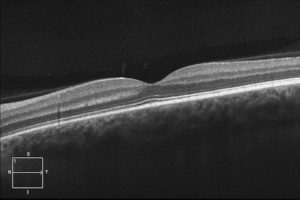Eye Disease Diagnosis & Surgical Treatment: Glaucoma, Cataracts, Diabetic Eye Disease,Macular Degeneration, Dry Eyes, Blepharitis and more.

The surprising truth about eye disease is that there are often no symptoms early on.
Your eye physicians at EYE MEDICAL GROUP can detect eye diseases at an early stage when there is a better chance to develop an effective disease management plan.
Don’t delay – Practice Preventive Medicine — early detection is key. Schedule an appointment at Eye Medical Group today.
What are the most common ocular diseases?
We, at EYE MEDICAL GROUP – ADVANCED MEDICAL AND SURGICAL EYE CARE, provide comprehensive medical eye examinations and surgical treatment with the latest advanced medical technology in a very personalized manner.
GLAUCOMA
Glaucoma is an eye disease resulting in a compromised optic nerve which can lead to irreversible loss of vision if not treated early in the disease process. Intraocular pressure is a risk factor for the development of glaucoma. Other risk factors include diabetes, race including African American and Hispanic, age, long term use of steroids, thin rim of the optic nerves, among others.
Glaucoma patients in its early stage usually does not present symptoms. Early glaucoma treatment is very effective. Medical treatment include eye topical medications and laser surgery by an eye physician such as one in our Eye Medical Group. During an eye examination, if there are signs of possible glaucoma or risk factors, your doctor may order further testing including an automated visual field, coherence tomography (OCT), pachymetry, gonioscopy and other specialized test which we perform in our offices at Eye Medical Group.
CATARACTS
Most of us are born with a clear natural lens in our eyes. Over time this clear natural lens becomes cloudy. This cloudiness of the lens is described as a cataract. The cataract blocks light, making it difficult to see, and usually get worse over time. In addition to aging,  other risk factors for the development of cataract include diabetes, trauma, long term use of steroids, long term history of excessive sun exposure, among others. In the early stages, you may be able to improve your vision with corrective lenses. When your vision is impaired, you may need to consider cataract surgery with us at EYE MEDICAL GROUP.
other risk factors for the development of cataract include diabetes, trauma, long term use of steroids, long term history of excessive sun exposure, among others. In the early stages, you may be able to improve your vision with corrective lenses. When your vision is impaired, you may need to consider cataract surgery with us at EYE MEDICAL GROUP.
DIABETIC RETINOPATHY
Diabetes has the potential to affect all of your bodily systems and organs, and including your eyes.
Diabetic retinopathy is the most common type of diabetic eye disease. Diabetic retinopathy often has no early warning signs. Diabetic patients may develop macular edema, which blurs vision, making it difficult to perform activities like reading and driving. As new blood vessels form in the retina as a result of diabetic retinopathy, they can bleed causing blur vision. In severe cases this can lead to irreversible loss of vision.
Studies have shown that diabetic patients should have a dilated eye examination at least once a year to assess for any ophthalmic side effects. Diabetic pregnant patients should be examined in their first trimester because retinopathy can progress quickly during pregnancy. Diabetic patients are also  more at risk to develop cataracts and glaucoma.
more at risk to develop cataracts and glaucoma.
MACULAR DEGENERATION
Macular degeneration affects the most sensitive area of the retina, macula, that allows a person to see fine detail. In our offices at EYE MEDICAL GROUP, we have advanced medical technology including Coherence Tomography (OCT) which allows our physicians to detect the disease in its very early stages. This leads to more successful treatment. OCT technology is similar to ultrasound except that it uses reflect light instead of sound. Light is reflected off of the back layer of the eye, retina, and an extremely high-resolution image is obtained. OCT is more detailed than an MRI and only takes a few seconds to perform.
There are two types of Macular Degeneration: wet and dry. Wet macular degeneration results from abnormal blood vessels that grow under the macula. These new blood vessels often leak blood and fluid. Wet macular degeneration damages the macula quickly so patients need treatment promptly. There is effective treatment in the form of intravitreal injections for the wet type. Thus, OCT technology becomes critical in allowing our physicians at EYE MEDICAL GROUP to not only to differentiate between the dry versus the wet macular degeneration, but also to detect very early signs of the wet type which can significantly help with the long-term prognosis.
Your eye physicians at EYE MEDICAL GROUP can detect eye diseases at an early stage when there is a better chance to develop an effective disease management plan. Schedule an appointment at Eye Medical Group today.
